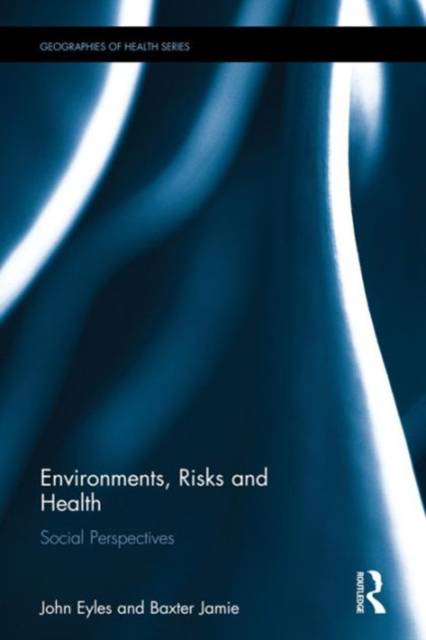
- Retrait gratuit dans votre magasin Club
- 7.000.000 titres dans notre catalogue
- Payer en toute sécurité
- Toujours un magasin près de chez vous
- Retrait gratuit dans votre magasin Club
- 7.000.0000 titres dans notre catalogue
- Payer en toute sécurité
- Toujours un magasin près de chez vous
290,45 €
+ 580 points
Format
Description
Much of the scientific work on environmental health research has come from the clinical and biophysical sciences. Yet contributions are being made from the social sciences with respect to economic change, distributional equities, political will, public perceptions and the social geographical challenges of the human health-environments linkages. Offering the first comprehensive and cohesive summary of the input from social science to this field, this book focuses on how humans theorize their relationships to the environment with respect to health and how these ideas are mediated through an evaluation of risk and hazards. Most work on risk has focused primarily on environmental problems. This book extends and synthesizes these works for the field of human health, treating social, economic, cultural and political context as vital. Bringing disparate literatures from across several disciplines together with their own applied research and experience, John Eyles and Jamie Baxter deal with scientific uncertainty in the everyday issues raised and question how social theories and models of the way the world works can contribute to understanding these uncertainties. This book is essential reading for those studying and researching in the fields of health geography and environmental studies as well as environmental sociology, social and applied anthropology, environmental psychology and environmental politics.
Spécifications
Parties prenantes
- Auteur(s) :
- Editeur:
Contenu
- Nombre de pages :
- 256
- Langue:
- Anglais
- Collection :
Caractéristiques
- EAN:
- 9781472410191
- Date de parution :
- 16-08-16
- Format:
- Livre relié
- Format numérique:
- Genaaid
- Dimensions :
- 163 mm x 234 mm
- Poids :
- 498 g

Les avis
Nous publions uniquement les avis qui respectent les conditions requises. Consultez nos conditions pour les avis.






